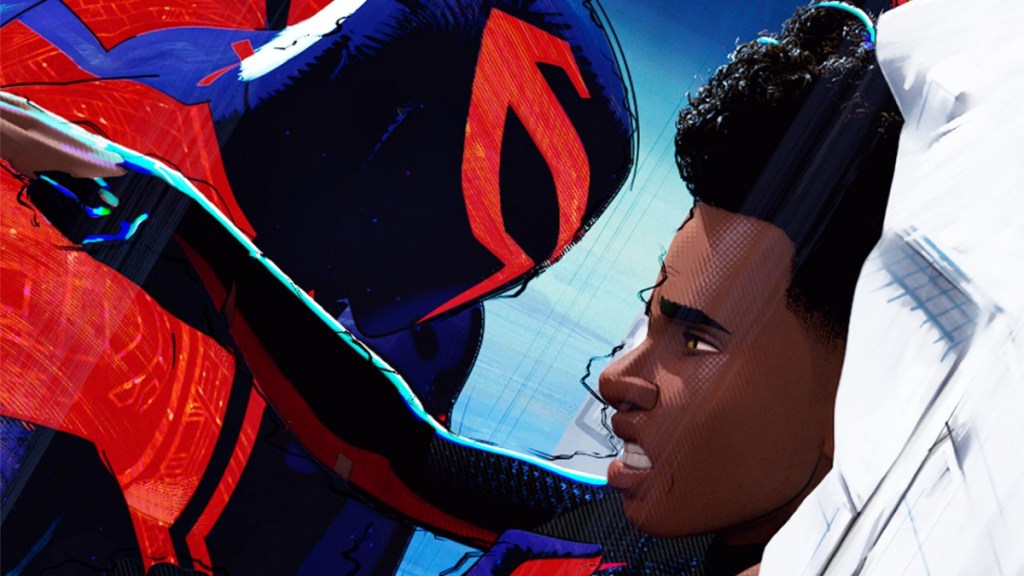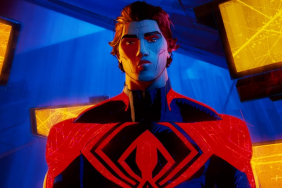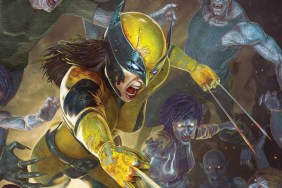Spider-Man: Across the Spider-Verse co-director Kemp Powers has opened up about the animated Marvel film’s commentary on comic book canon.
In Across the Spider-Verse, main protagonist Miles Morales/Spider-Man (Shameik Moore) runs afoul of the Spider-Society, an organization led by Miguel O’Hara/Spider-Man 2099 (Oscar Isaac). The Spider-Society is dedicated to preserving the canon of the multiverse. Miguel, in particular, makes a big deal of “canon events” — key events that every Spider-person must experience, lest reality start to crumble.
On IndieWire‘s Filmmaker Toolkit podcast, Powers discussed the reasoning behind making real-life comic book terminology central to Across the Spider-Verse’s story. “We didn’t call it ‘canon’ for years,” he said. “We had all these different names for it. We were calling it ‘convergence events.’ We had all these different names and we were just like, ‘These names all sound dumb.'” It was co-writer/producer Christopher Miller who eventually suggested the name “canon events.”
“It turned into just calling it what it was, which is the idea [that] comic books can [become] a slave to these rules — rules that the people who created them did not think you had to draw within the lines just like that,” Powers continued. “It’s one of the weird things about comic books becoming such fodder for film and television, is that a fan base that used to be niche suddenly became the vocal experts on some of the biggest entertainment in the world.”
Comic book canon isn’t the be-all and end-all for Spider-Man: Across the Spider-Verse
The director added that there’s a “feeling of ownership” when it comes to comic book properties. “‘Look, I’ve been reading comic books since this long and so, trust me, you can’t do this. You can’t do that,'” he said. “But comics and films are two different mediums and I think that, when you’re thinking about the idea of canon, it’s been something that I’ve dealt with in my professional career a lot when I’ve worked as a writer.”
In fact, Powers says he’s had pitches for prominent IPs rejected in the past for not adhering to established canon. “It always grated on me because in many cases I would be one or two degrees removed from the person who created it and then people would tell me, ‘Oh yeah, when so-and-so made that up, he was high as a kite.’ In many cases, you’re dealing with stuff that is [treated as] sacrosanct, but the person who created it pulled it out of their ass,” he said.
Across the Spider-Verse’s theme of pushing back against the rigidity of canon is ultimately what drew Powers to the project. “[T]hat’s a heady, meta idea that was just chomping at the bit to dig into,” he concluded. “If the sequel had been about, ‘Let’s just do what we did in the first ‘Spider-Verse,’ but bigger, that wouldn’t have been very interesting to me.”
Spider-Man: Across the Spider-Verse is available on 4K Ultra HD, Blu-ray, DVD, and Digital. The film is also currently streaming on Netflix.









